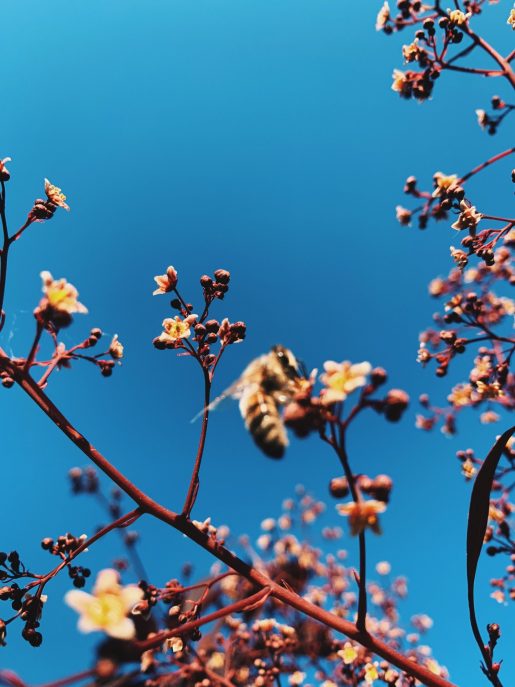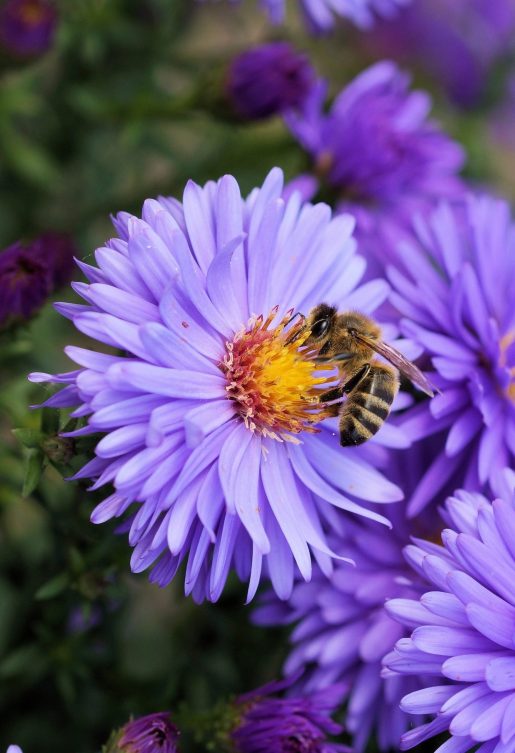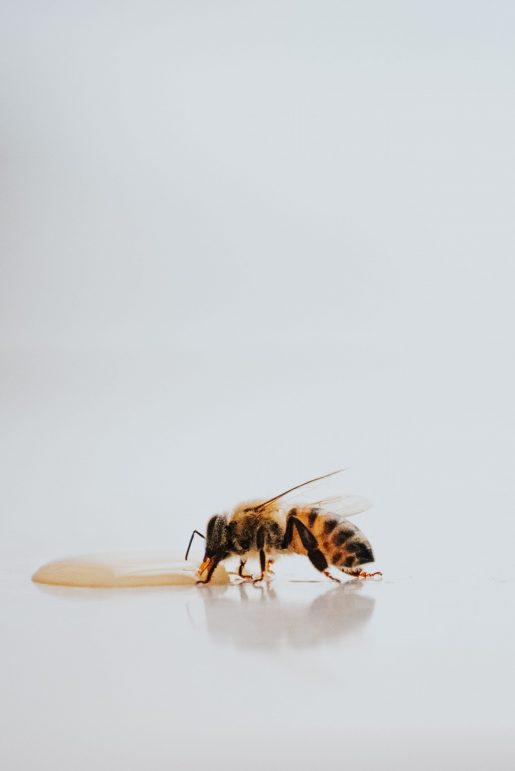🐝 SHIPPING 5€, FREE FROM 40€ - REST OF EUROPE 10€, FREE FROM 80€ 🐝
Some people, when they think of bees, they only associate them with honey (and some with a bad memory of a sting) but the truth is that their importance is crucial for our life on the planet, below you will find information on how we can help bees .
They are responsible for keeping plants and crops alive. Without their help, transporting pollen from flower to flower, it would be impossible for most of the food we consume to exist: they pollinate around a third of the agricultural plants grown in the world. . But in recent decades and due to the use of pesticides and toxins in crops, the number of bees began to plummet. Climate change and pollution also affect their natural environments.
To collaborate with their preservation, there are a couple of measures we can take to make their habitat as healthy as possible:
They get most of their nectar from trees! When a tree blooms, it provides thousands of flowers from which they can obtain food, in addition its leaves and resin provide them with material to build their nests and the cavities in the wood are an excellent shelter. Deforestation also affects bees, so respecting forests and wooded areas is very important.

We can offer them a refreshing drink of water while they continue working by providing them with a shallow container with some stones inside to help them step, take a break and drink.
They work hard to take care of their bees, the best way to thank them is by buying their products, whether it be their wax or their honey. You can read about the incredible uses of beeswax aquí. By consuming honey from your area you can strengthen your immune system and avoid seasonal allergies since it is composed of the nectar of the local flora. Commercial honey from the supermarket usually has syrups or additives.
Not only in our gardens, where it is ideal that we opt for natural alternatives to chemical pesticides and herbicides, but also consume local foods from organic and toxic-free crops. This also helps maintain the area’s native plants and wildflowers.

All actions that help preserve their healthy habitat will help us keep them safe! Even when deciding what you are going to plant, you can do so taking into account the flowers they like the most, such as lavender, rosemary or mint.
I hope that you found this information interesting and that it has given you ideas on how we can do our small contribution to help them. Finally, I share with you some curious facts about bees:

– All worker bees are female.
– A bee produces a teaspoon of honey (about 5 grams) during its life.
– To produce 1 kg of honey, bees fly the equivalent of three times around the world in air miles.
– The type of flower from which the bees take their nectar determines the taste of the honey.
– Bees can’t see red color and prefer yellow, blue or purple flowers.
– There are more than 20,000 different species of bees, found on every continent except Antarctica.
– The bee is the only social insect partially domesticated by humans.
"A great discovery! The truth is that they have surprised me a lot, so much so that I am already going for my second order! Their designs are very original and varied, I also love the packing, you can see that they put a lot of love to the product. I also recommend it as a gift for your mothers, mine does not stop using them "
"Fabulous pack with different sizes of wraps, ideal for storing food of different dimensions. They are super useful for every day use. The applications it has are endless, and you also know that you are saving on plastics every time you use them, I love that they are reusable! "
"Wonderful. I bought a pack of three sizes and then an XL to give them as a gift, and they keep giving me good references. And I feel good knowing that I have done my bit to take care of the planet."
"The best package to try! You have the 3 essential sizes to try the product… .but you'll like it so much that you'll later buy the sizes you use the most !!!"
We took a break.
FOR ANY QUESTIONS SEND US A MESSAGE.
By continuing to use the site, you agree to the use of cookies. More information
The cookie settings on this website are set to "allow cookies" to give you the best browsing experience possible. If you continue to use this website without changing your cookie settings or you click "Accept" below then you are consenting to this.